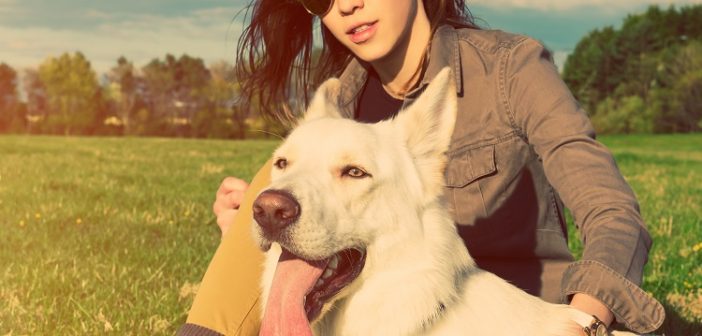A pet can be one of the most important things in your child’s young life and can offer many benefits. Not only do they provide friendship, companionship, and a close and trustworthy confidant, they can also help instill some very important life lessons in your little boy or girl such as a sense of care and responsibility.
Many parents, however, know that kids can get excited with the thought of owning a pet but remain unaware of the responsibility required to take good care of the animal.
If your child, has been pleading for a rabbit or hamster, how do you know if they have it in them to take care of the pet? As a parent, you can help your child become more responsible in looking after their pet.
Discover how by reading on below!
Family Discussion
Before deciding on whether to let your child get a pet, it is important that the whole family sits down and discusses the matter. After all, a pet will be an addition to the family and will come with their requirements.
It is therefore important to ensure everyone understands what this means to the family. A dog, for instance, will need regular walks, and cats not so much. Furthermore, the pet will need food and water as well as making sure that they are clean.
This information will help your child understand that getting a pet is so much more than having a furry friend. It will also mean taking good care of them. It paints a clear picture in your child’s mind and ensures that they are prepared to take on the responsibility.
The Responsibility of Getting a Puppy
It might seem like getting a puppy for your child is simply about going to the pet store and picking the cutest and loveliest of the bunch. However, there is a lot more involved.
Some breeds such as Boston terriers and Labrador retrievers are friendly with people and children while others such as Dalmatians and greyhounds typically don’t like to be around children and may therefore not make the best pets for your little one.
Furthermore, larger breeds require plenty of exercise and room to play and may prove too powerful for your young child when taking them on walks.
You also need to consider the health of the breed as some are more prone to genetic conditions than others are. Hip dysplasia in dogs, for instance, is a common condition, especially in larger breeds.
Consider also where you are getting the puppy. If you are doing so from a rescue center, then previous hardships and trauma experienced by the puppy may affect their temperament and would therefore not make the best pet.
If you live in an apartment, you will need to ensure that the puppy has a safe and restricted area where they can play around without getting in trouble.
Secondly, the puppy will need to eat at least three times a day and to go to the “bathroom” around 4 times a day. You will need to teach the dog how to use the bathroom which usually takes 2-3 months. Before this time, the puppy can make mistakes and a patient pet owner is needed to clean after the mess.
Not forgetting that the puppy will also need to go to the vet for regular checkups and vaccines. All this is something that your small pet owner to be will need to understand beforehand.
Note that different pets have different requirements and it is important to help your child understand the requirements of their chosen type of pet.
The Responsibility of Getting a Cat
If your child wants to get a kitten, then they will not be faced with quite as much work in raising it compared to a puppy.
First off there is usually no need to teach your kitten the rules of going to the bathroom. As long as there is a litterbox ready, they will generally know how to use it. The litterbox, however, will need to be changed often and should be available all the time to prevent the kitten from “going” on the floor or on the bed.
Also, kittens don’t need as much attention as puppies do. They don’t need regular walks. However, they will enjoy playing with your child. That said, they have some pretty sharp claws and teeth that can injure your child so it is crucial to ensure that the child learns to handle the kitten with care.
Cats will also need regular visits to the vet. However, they are not affected by health issues quite as much as dogs are.
When it comes to feeding your cat, many pet owners find it easier to leave dry food allowing the cat to eat whenever they are hungry. The cat will also require access to clean water at all times.
More Furry Friends
While dogs and cats are the most common types of pets, some kids may prefer having a different kind of furry friends such as a hamster, a mouse, or a rabbit.
They are the perfect type of pet for a child who doesn’t fancy taking those regular walks or having a feline companion.
Diet is an important consideration when dealing with rodents. Many people tend to only feed them pellets which causes them to lack essential vitamins and minerals.
These typically will not need regular trips to the vet and they also do not take up too much space. You may need however to take your pet to the vet if you notice that they are not active, are not eating, and generally seem ill.
Note also that they may not have the longest lifespan. Mice and hamsters can live for two years while rabbits may live for up to seven.
Rodents can be a bit smelly and therefore, a lot of focus should be on ensuring that their living space is always clean.
Final Word
If your child has been asking for a puppy or a kitten, it is important to ensure that they first and foremost understand the responsibilities involved in taking care of a pet. That said, a pet can help teach and instill important life lessons such as being responsible and empathetic.





It is very important to prepare your child to care for a pet.
Since ancient times, animals have been constant companions of people. The influence of pets on the behavior of children has long been known. Back in 1969, the American psychotherapist B. Levinson wrote that animals help break the child’s hostility to the world around him and establish communication links.
Children are much more likely than adults to attribute human traits to their animal friends, they treat them like their peers, talk to them, confide in their secrets. A cat or a dog, unlike parents who are always out of time, will always listen to and understand them.
By the way, I bought my child a cat breed Nebelung https://petonbed.com/nebelung/ Cats of this breed behave nobly in any situation. They do not impose their communication on the owner, they just need to be close to him. In relation to strangers, they behave prudently: it must take some time before the Nibelung begins to trust a new person.
A dog’s presence will significantly reduce the stress response in children in the alone and parent present conditions resulting in lower cortisol. Pet dogs provide socio-emotional benefits for children via stress reducing and lowering stress hormone levels.
At the same time care has to be taken to put simple steps for managing the dog by for example setting up regular vaccination schedules and dog grooming sessions (can be done at home with a simple tool like a dog clipper).